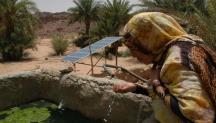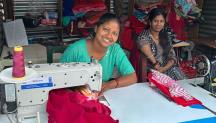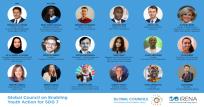
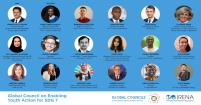
Global Council on SDG 7 Sets Youth-focused Agenda
Newsletter
“The world is not on track to realise the SDG 7 target of affordable, reliable and sustainable energy for all,” said IRENA Director-General Francesco La Camera, in his opening remarks at the first meeting of the Global Council on SDG 7 that took place on 14 February 2022. “We need urgent action and radical solutions. One of our greatest, yet under-utilised, assets is the ingenuity and drive of young people.”
As chair of the second term of the Global Council on SDG 7, Mr. La Camera dedicated the focus of the Council to the intersection of Youth and SDG 7. Referred to by the Director-General as an ‘intergenerational Council’, the “IRENA Global Council on Enabling Youth Action for SDG 7” brings together 18 young leaders, government representatives, expert practitioners and delegates from different institutions and regions, to develop and adopt an action plan with concrete initiatives that can drive forward youth-led action on energy access and the transition to a renewable energy future.
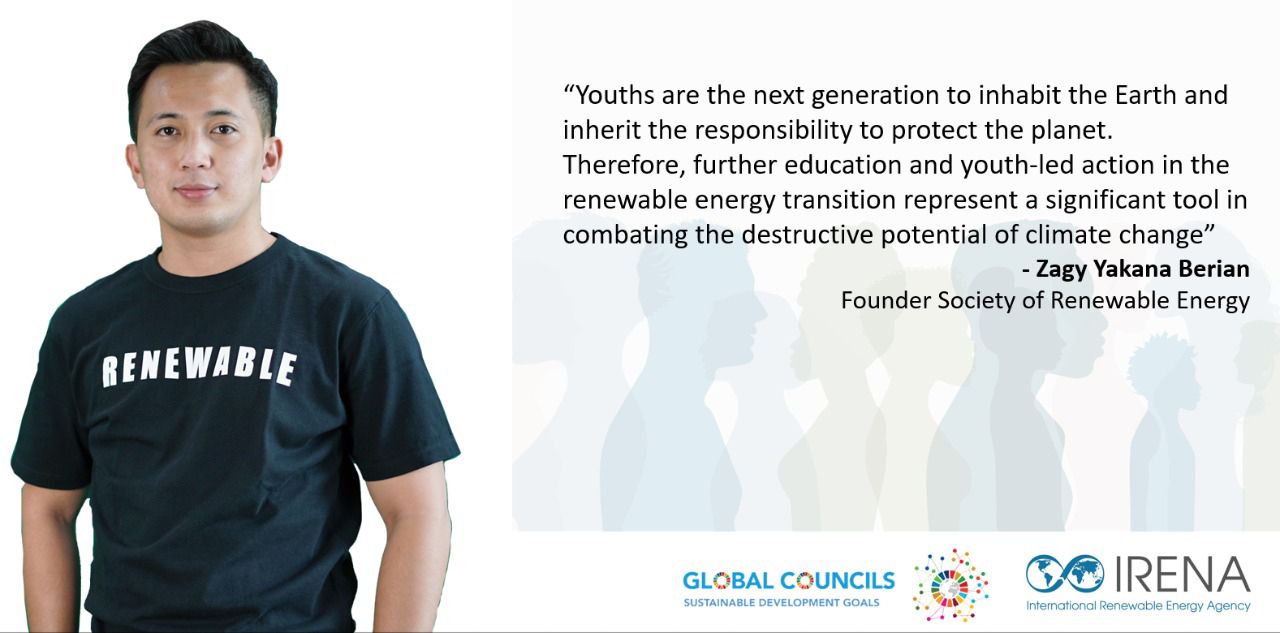
Shaped by discussions and demands from the IRENA Youth Forum, the Council will develop concrete activities around three main objectives:
- Elevate youth voices within the international energy and climate agenda.
- Increase youth-led action, innovation, entrepreneurship and advocacy for SDG 7.
- Build the renewable energy skills and capacities of youth.
The IRENA-led Council, moderated by its Vice-Chair, Ms. Passy Ogolla, Regional Focal Point for East and Southern Africa at the SDG 7 Youth Constituency, heard from Members as they took turn in providing their feedback and offered their views on the Council’s agenda and work over the next two years.
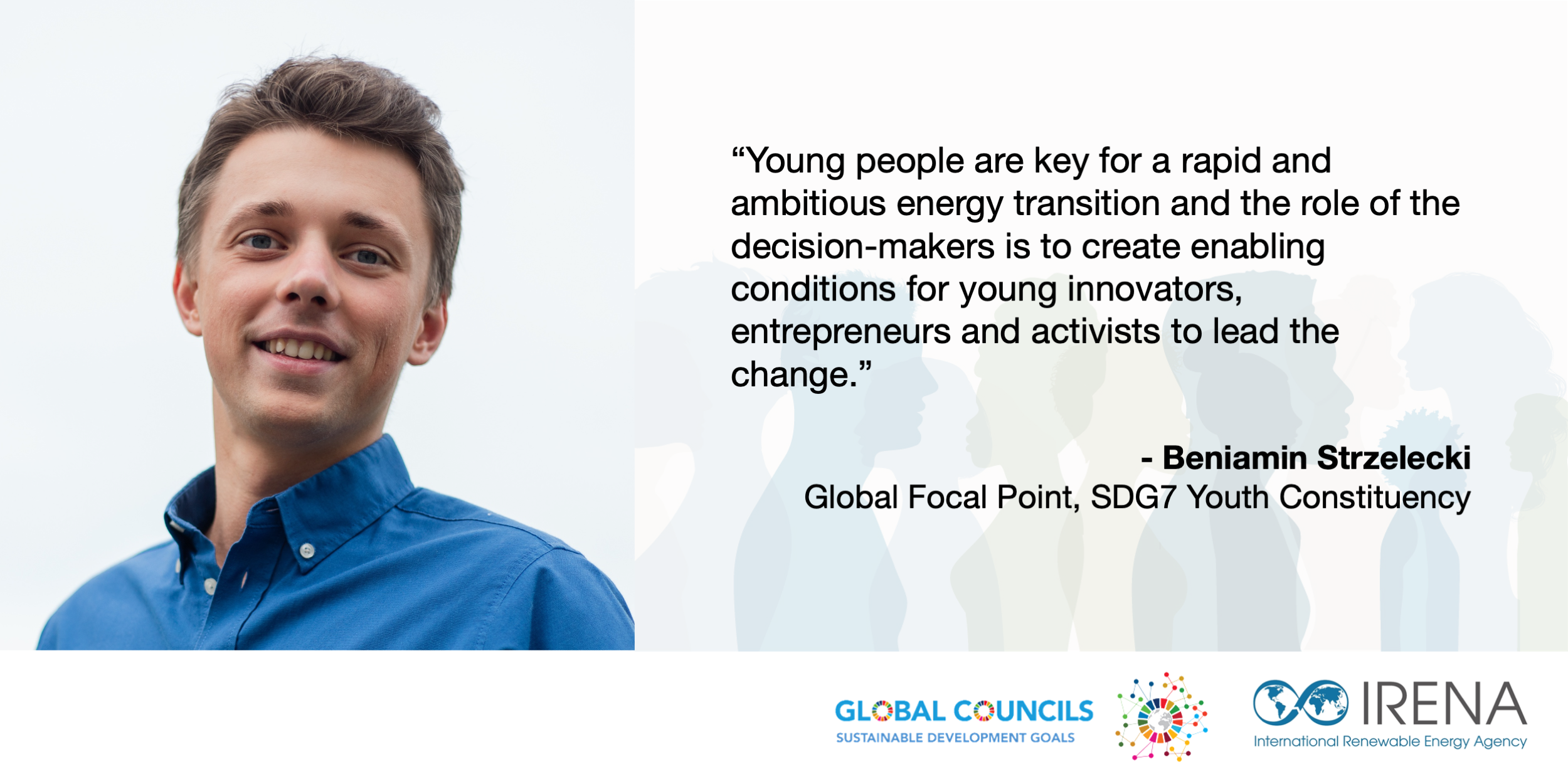
“One of the best contributions that the youth offer to this type of initiative is their unique perspective and creativity,” said Dr. Maria Neira, Director of the Department of Environment, Climate Change and Health at the WHO. “I think the young people in this group can help us develop a catalogue of ideas to help achieve SDG 7 that we can implement and monitor.”
Ishita Yadav, Regional Focal Point for South Asia at the SDG 7 Youth Constituency and National Youth Council of India, brought some of those ideas forward during her intervention: “stakeholders can advance our goal by providing affordable education, targeted mentorship programmes and paid internship opportunities.”
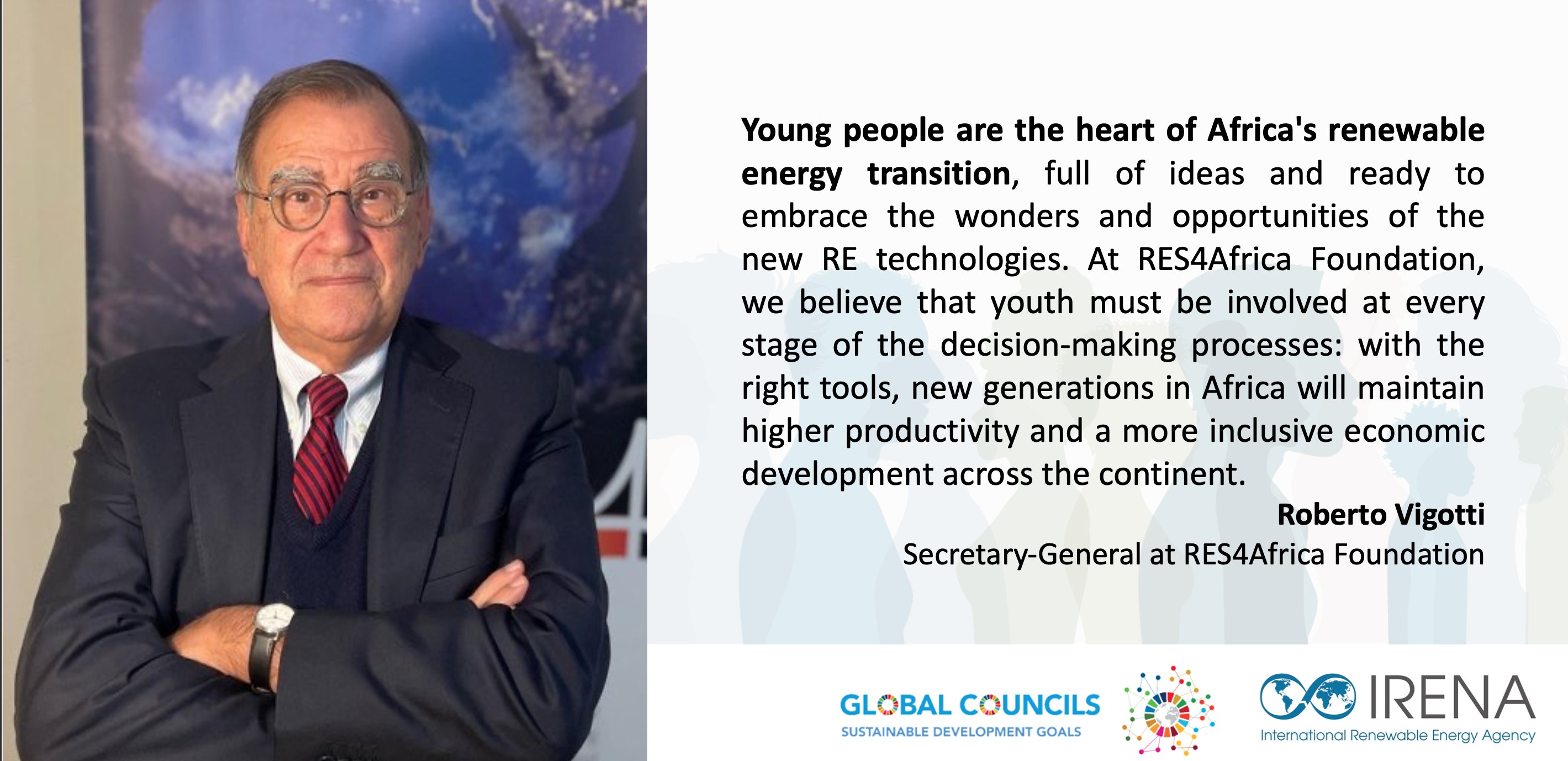
For his part, Mr. Gautam Narasimhan, Global Lead - Climate, Energy, and Environment at UNICEF, highlighted the importance of linking certification and skills building to internship or training opportunities, where they can be applied, particularly in the private sector.
"When we talk about capacity building, we need to make sure that these opportunities are reaching those that need them the most,” said Federico Barbieri, President of the European Youth Energy Network. Federico emphasised the need for a nuanced approach to communicating these opportunities based on country and region, proposing that the Council discuss this important issue to make sure that the energy transition is more inclusive.
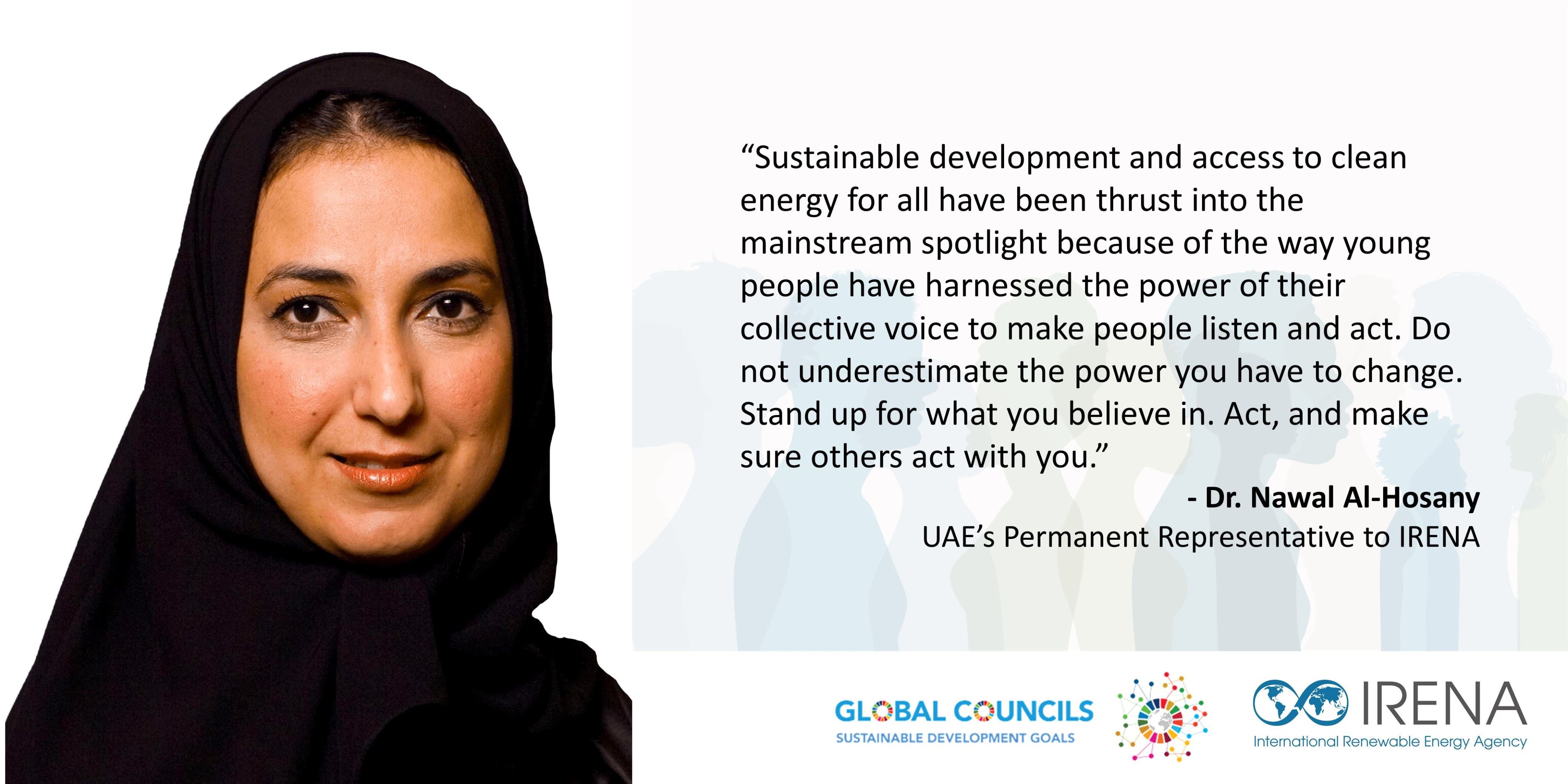
Another important point was raised by Dr. Nawal Al Hosany, Permanent Representative of the UAE to IRENA who pointed out the need to increase youth participation at the technical level in the renewable energy sector. “The majority of youth engagement has been around policy, communications and advocacy,” said Dr. Nawal. “It’s important to address why we aren’t seeing the same level of participation in technical fields such as engineering, innovation and entrepreneurship.”
In closing, IRENA outlined the next steps which include identifying initial priority action areas and activities for the Council based on the feedback given by the Members. The Council will meet on a regular basis over the course of its two-year term to develop and implement programmes dedicated to placing youth at the heart of achieving SDG 7.
